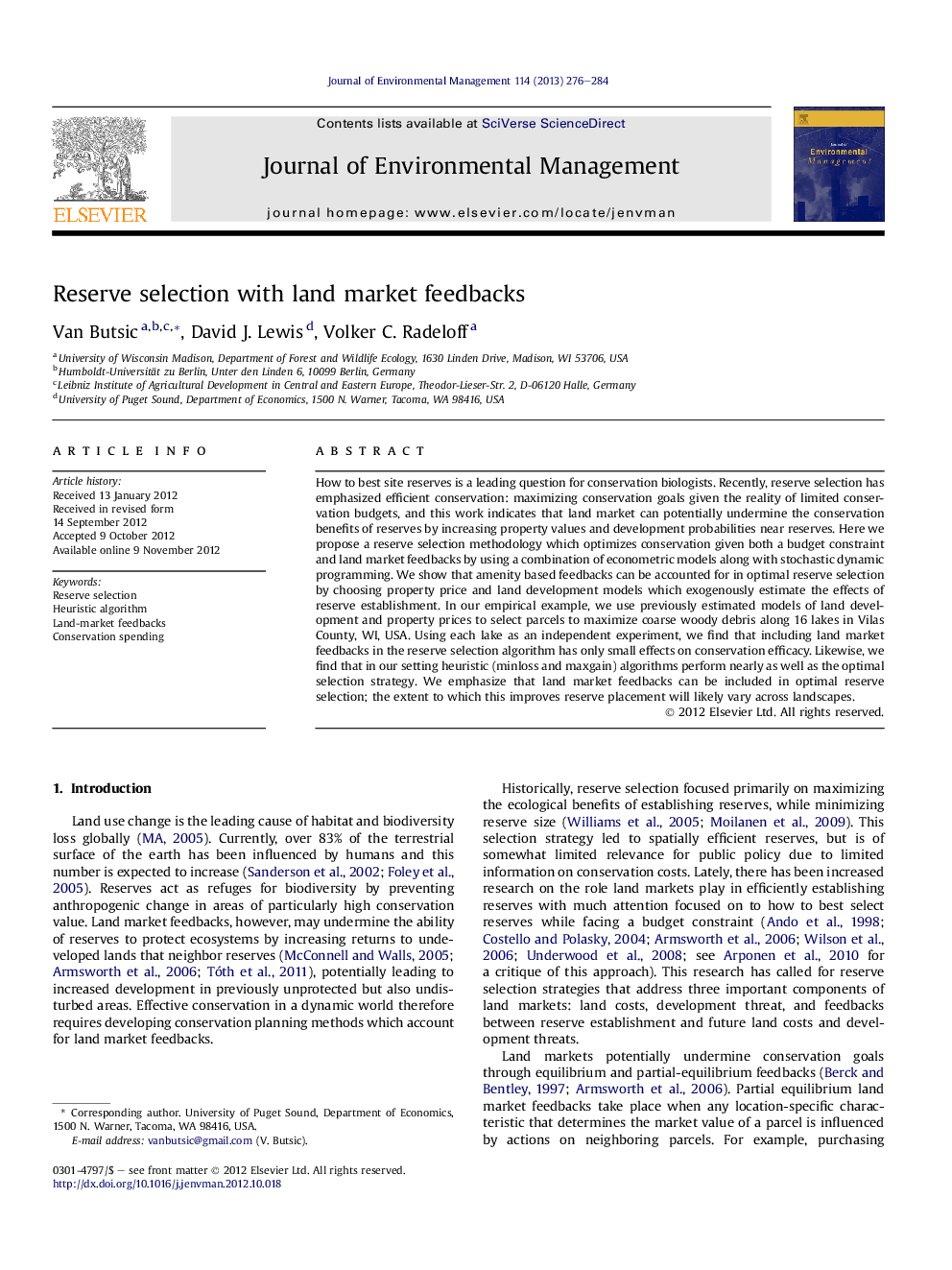| Article ID | Journal | Published Year | Pages | File Type |
|---|---|---|---|---|
| 1056602 | Journal of Environmental Management | 2013 | 9 Pages |
How to best site reserves is a leading question for conservation biologists. Recently, reserve selection has emphasized efficient conservation: maximizing conservation goals given the reality of limited conservation budgets, and this work indicates that land market can potentially undermine the conservation benefits of reserves by increasing property values and development probabilities near reserves. Here we propose a reserve selection methodology which optimizes conservation given both a budget constraint and land market feedbacks by using a combination of econometric models along with stochastic dynamic programming. We show that amenity based feedbacks can be accounted for in optimal reserve selection by choosing property price and land development models which exogenously estimate the effects of reserve establishment. In our empirical example, we use previously estimated models of land development and property prices to select parcels to maximize coarse woody debris along 16 lakes in Vilas County, WI, USA. Using each lake as an independent experiment, we find that including land market feedbacks in the reserve selection algorithm has only small effects on conservation efficacy. Likewise, we find that in our setting heuristic (minloss and maxgain) algorithms perform nearly as well as the optimal selection strategy. We emphasize that land market feedbacks can be included in optimal reserve selection; the extent to which this improves reserve placement will likely vary across landscapes.
► Reserve establishment can lead to land market feedbacks. ► We integrate land market feedbacks into a reserve selection algorithm. ► Empirically, this has only minimal impacts. ► The generality of this result is unclear.
